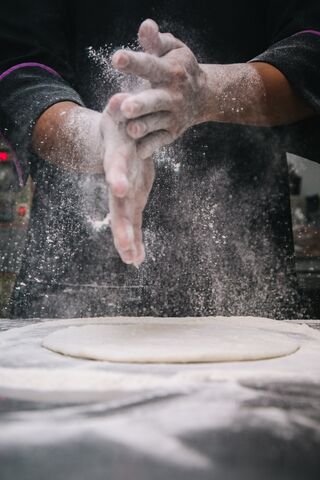Psychology
Sloppy Poppie, Trash Eclairs: Prescriptive Norms in Seinfeld
Reactions to the Seinfeld characters' behavior sheds light on societal norms.
Posted September 30, 2020
Living in the era of Netflix is a magical thing. After years of making what I was sure were clever references to the TV shows of my adolescence and having students stare back at me blankly, there came a semester when I got one chuckle. The next semester, there were more. And now, most of my students born in the 00s know exactly what I mean when I say things like “he’s her lobster.”
When Friends came to Netflix, my students discovered it and fell in love just as I did. I’m banking on the same happening with Seinfeld when it arrives on the streaming platform in 2021, and in preparation, I’m beginning to think of all the ways I can use examples from the show to highlight concepts in my courses. As I watch through this “show about nothing” for the umpteenth time, I’ll be sharing some of my favorite Seinfeldian moments and the psychology behind them. In this series, we’ll ask, “what’s the deal with the psychology of Seinfeld?”
In a previous post, I showed you several examples in which Jerry, George, Elaine, and Kramer violated descriptive social norms, or a set of implicit rules that determine what is considered normal or typical behavior. They are often so ingrained that we don’t realize they are “rules” at all until someone breaks them, and then it may feel intensely off-putting.
The sneaky thing about these norms is that they’re not codified into formal rules or laws, and while we can learn them through direct instruction (usually your mother telling you to stop doing something because you look like a weirdo), we often passively absorb them through watching others and internalizing others’ reactions to our behavior. For example, it’s not immoral to be a close talker, but it certainly makes people uncomfortable!
The Seinfeld gang certainly broke many descriptive norms, but they were also well-versed in breaking prescriptive norms, a stronger type of norm that governs not just what is normal or abnormal to do, but rather, what is right or wrong to do.
Prescriptive Norms
Prescriptive norms outline what we should and should not do, and violating them leads to more serious social, and sometimes legal, punishments; these norms so important to a culture that they are sometimes codified as law. If you violate a descriptive norm, you may be seen as weird, but if you violate a prescriptive norm, you will likely be judged as bad. It is often a little easier to articulate what prescriptive norms are in a situation, group, or society, but like descriptive norms, we sometimes don’t realize we view something as inappropriate or wrong until someone behaves in a way that makes us uneasy.
Although we love them anyway, the members of the Seinfeld crew are all basically terrible people, so it is unsurprising that they do their fair share of breaking prescriptive norms. Here, I’ll highlight what happened when our protagonists violated prescriptive norms related to sexual behavior, personal hygiene, and food.
Sexual Behavior: “You Were Making Out During Schindler’s List?!”
In the follow-up episode to the close talker, Jerry is frustrated that his parents are still in town and he has had no time alone with his girlfriend. Jerry and his girlfriend go see the film Schindler’s List together and end up succumbing to their pent up romantic desires in the theater. Little did they know, Newman witnessed the entire scene. Newman rats Jerry out to Mr. and Mrs. Seinfeld, saying, “a more offensive spectacle, I cannot recall!” Jerry’s parents berate him over the event, saying “how could you?!”

Making out during Schindler’s List violates a couple of prescriptive norms. One has to do with public displays of affection. In general, people tend to feel that such behavior should be kept behind closed doors, and typically react negatively to intense public romantic activity. Jerry and his girlfriend also violated our sense that we should be respectful and reverent when dealing with sensitive material like the Holocaust. By making out during a film that showcased Nazi atrocities, Jerry did something most people would feel is inappropriate, if not outright morally wrong.
Sexual Behavior: George Dating His Cousin
In “The Junk Mail,” we’re presented with an unusual situation: George decides to violate a prescriptive norm on purpose! In order to try to make his parents pay attention to him again, George cooks up a scheme to ask his first cousin to date him, fully expecting her to find the idea reprehensible and to tell his parents, prompting them to talk to him. Having a romantic relationship with a relative is strongly frowned upon in most modern societies, and in many cases, depending on the degree of relation, it is illegal. However, to George’s surprise, his cousin is on board with the idea of having a relationship with him, and George finds himself disgusted by his own norm violation!
Personal Hygiene: “That Book Has Been in the Bathroom!”
In Season 9’s “The Bookstore,” George takes a book on French impressionism into a bathroom at a Brentano's bookstore. When he tries to put it back on the shelf, an employee forces him to purchase it. Later, he cannot return it because it has been “flagged.” When he tries to sell it to Elaine while at the cafe, Jerry ruins the sale, saying “I’m not eating anything in the vicinity of that book!” Even the charity shop won’t take it.

In American society, the first rule of using the bathroom is that you don’t talk about using the bathroom. We’re squeamish about bodily functions to the point that we use euphemisms like “restroom” instead of calling it the toilet like our friends across the pond. So even worse than acknowledging you’ve been to the bathroom at all is taking something in there that is not yours and that someone might later touch. It’s an issue of germs, but also a reminder of what happens in there, and apparently, it freaks us out to think about that. By taking a book into the bathroom that he had not purchased, and did not even intend to purchase, George violated norms about hygiene in a major way…but not as severely as our next example.
Personal Hygiene and Food: “Poppie’s a Little Sloppy”
Along the same lines, restaurant owner and father of Jerry’s girlfriend, Poppie, violated prescriptive norms about bathroom hygiene when he didn’t wash his hands after using the toilet. However, in this case, Poppie also broke norms related to food because immediately afterward, he stuck his filthy bathroom hands in the pizza dough he was kneading for Jerry and Audrey’s dinner. Jerry refused to eat the pizza, causing a rift between him and his girlfriend.

Remember how some prescriptive norms are so strong we make laws out of them? Cleaning your hands before preparing food is one of those, so Poppie’s behavior didn’t just gross people out—it was illegal. Jerry used Poppie’s sloppiness to get the restaurant shut down by the health department.
What Not to Eat: An Éclair in the Trash (Even If It’s on Top)
In addition to food hygiene, there are many prescriptive norms governing what and how we eat. In one of the most cringe-inducing breaches of all, George opens the trash can to find a bitten éclair sitting in its doily at the very top of the trash can; after considering for only a brief moment, he picks it up and eats it. We don’t eat trash, even if it’s barely considered trash, and eating food after someone else has bitten into it is widely considered a no-no (which explains why George was physically accosted after double-dipping a chip in another episode).
Social Punishment
As with descriptive norm violations, we tend to keep each other in line by imposing punishments on offenders. When these prescriptive norms were broken, the characters were socially punished. Jerry’s parents berated him over making out during Schindler’s List. When George ate the éclair out of the trash, the woman who saw it happen left in disgust, while Jerry mocked him relentlessly and called him a bum. When George double dipped the chip, he was aggressively confronted. Poppie got crossways with the law and lost his restaurant. Whatever the specific outcome, it was bad, and hopefully caused them to rethink their behavior in the future.
Seinfeld is a treasure trove of examples of psychological concepts, so we'll continue analyzing the series in future posts.




